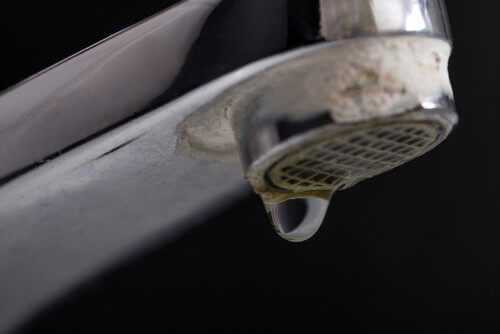Pros & Cons of a Water Softener
There is a lot of debate whether or not hard or soft water is best for drinking, cooking, cleaning or bathing in. And there are mixed reports on the health benefits of hard water compared to soft water. What it comes down to is personal preference on how you like your skins to feel, water to taste, the effectiveness of soap and detergents and how it affects your plumbing. Knowing the pros and cons of a water softener will help you decide on a solution that fits your needs.

What Is Hard Water?
Hard water contains a considerable amount of dissolved minerals and ions like calcium and magnesium. Because water is a powerful solvent, it easily picks up impurities as it travels through rocks and soil before it’s redirected into the water supply. The hardness of the water is measured in terms of milligrams of calcium carbonate per liter of water. If the water contains less than 60 mg/L it’s considered “soft”, anything greater is considered “hard”.
What the water softener does is remove the calcium, magnesium and sometimes iron that the water provider doesn’t take out for you. It passes the water over an ion exchange resin and replaces them with other ions like sodium or potassium.
Pros of a Water Softener
Soaps and Detergents Work Better – Soap is less effective in hard water because it reacts with the calcium and magnesium and forms a grayish soap scum and less suds. With soft water, your silverware, tiles, skin, hair and clothing will be less scratchy, dry and covered in soap scum.
Easier on Plumbing – The mineral deposits in hard water accumulate and coat to the surfaces of pipes and appliances causing build-up, also known as scale. This usually occurs when water is heated. Over time, the water flow will become restricted and repairs will need to be made to prevent clogs.
Requires Less Energy To Heat Water – Hard water often develops deposits inside of hot water heaters. This coating prevents heat transfer to the water resulting in the use of more energy and higher energy bills. Scale can also develop on dishware, pot and pans causing it to heat unevenly on the stove.
Cons of a Water Softener
Decreases Health Preserving Minerals – Minerals not only give your water taste, they also supply a good amount of health benefits. If you are using a water softener, you may be reducing your daily mineral intake.
Environmental Burden – Many water softening systems discharge a large amount of sodium and corrosive salt brine into the sewer line, making it harder for sanitation departments to clean and recycle the water. Some traditional softeners also use a backwashing filtration system that potentially wastes gallons of water per year.
Undesirable Water Quality – Water softeners release a sodium into the water often resulting in a saltier taste. It’s also advised to not water your lawn and plants with softened water due to the sodium content. The softer water also has a smooth feel to it and some say the slimy feel is hard to rinse.
If you are on the fence as to whether or not to install a water softening, it’s best to first know what is actually in your water. Sometimes, if you are on municipal water, regular reports might be available that disclose the degree of harness and other facts. Or you can test the water on your own by using a water testing kit. Based on the testing data, what you decide will be on what your personal goals are for your household water. There is no right or wrong answer.
Want to check if hard water is affecting your plumbing? Give Bailey Brothers a call at 405-896-9988.
